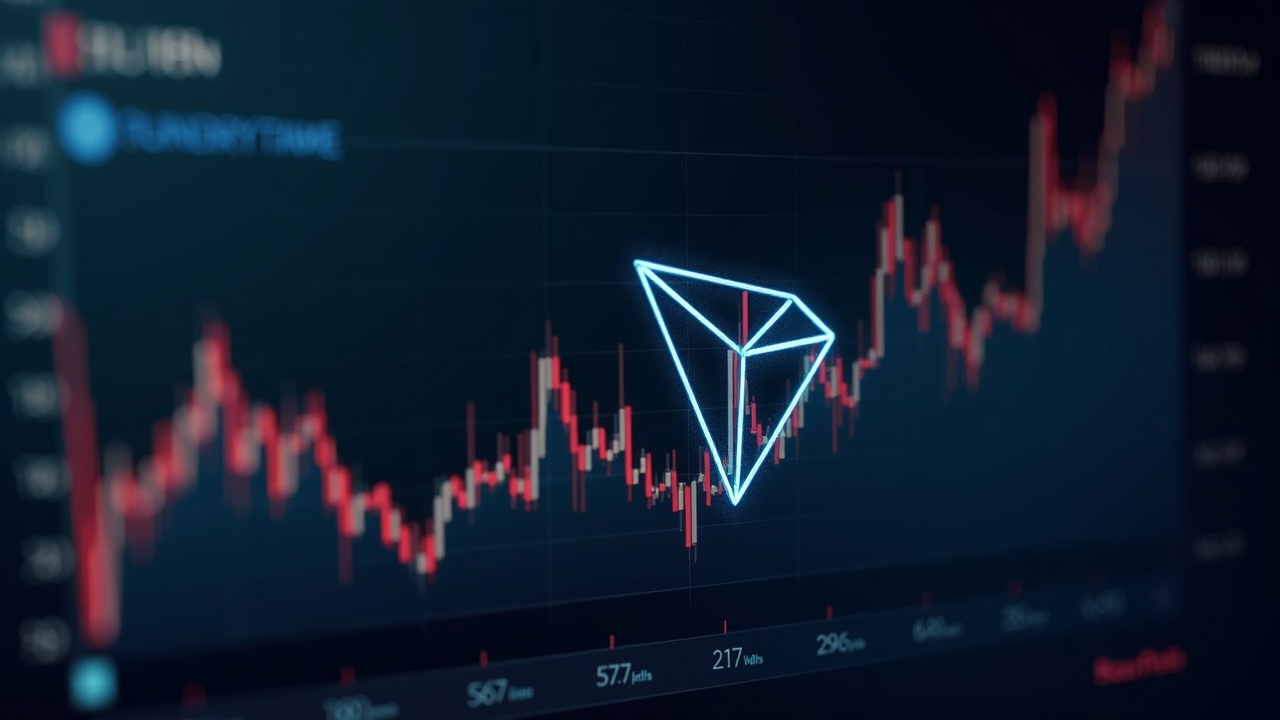Tron Inc.’s stock has plummeted 85% from its June 2025 peak, a dramatic slide that analyst Jina links to a perfect storm of factors: a broad downturn in Digital Asset Treasuries (DATs), intense regulatory uncertainty, and persistent governance questions. This decline has impacted all holders, from large funds to small accounts, as the company’s heavy allocation of its treasury to crypto has amplified the market’s downward moves.
Context and Impact of the Plunge
The 85% loss accumulated through 2025, with the most severe drops occurring in September. The stock fell from a peak of $12.80 on June 20 to trade between $1.93 and $2.17 by late September, highlighting a massive compression in equity value.
This sell-off is part of a broader trend affecting the entire DAT sector, where firms hold cryptocurrencies on their balance sheets. The “hype and frenzy” that initially propelled these companies have deflated as investors reassess the risks. Furthermore, the U.S. Securities and Exchange Commission (SEC) and the Financial Industry Regulatory Authority (FINRA) are investigating 200 firms for suspicious stock trades made before crypto treasury announcements, casting a shadow over the entire sector and increasing volatility for individual stocks.
The situation was compounded by governance and strategic decisions. After Justin Sun’s father assumed the chairman role and the firm increased its concentration in the TRX token, the stock effectively became a leveraged bet on a single coin . This created a negative feedback loop; as the price of TRX sank, it directly eroded the value of the company’s own treasury, pushing the stock down further.

Implications and Outlook
The outlook for Tron Inc. is challenging, shaped by both internal strategy and external market pressures.
Jina expects that investors will demand a higher return for the increased risk, meaning the stock will likely trade at a lower volume and that raising debt could become more expensive for the company, tightening its financial conditions.
The company’s fundamental vulnerability remains. A declining TRX price will continue to directly erode the value of the firm’s crypto treasury, which can feed back into the share price and magnify swings. This dynamic is particularly risky given the limited trading volume of TRX compared to major assets like Bitcoin.
Regulatory scrutiny is unlikely to fade. Regulators are expected to keep a close watch, and outside stakeholders will likely continue pressing for board changes, keeping governance under a microscope.
There is also a risk of exclusion. Funds that track crypto baskets may drop the stock, which could reduce institutional flows and weigh further on market sentiment.
The company’s next moves hinge on regulatory decisions and management’s willingness to potentially diversify its treasury and address governance concerns. The market will be watching for any updates from the SEC and for a strategic treasury overhaul that might help win back cautious buyers.


